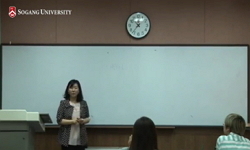The goal of this study is to compare and analyze any difference between role expectation level of public kindergarten's principals and their performance level, and also address the comparison and analysis of any difference in their role performance le...
http://chineseinput.net/에서 pinyin(병음)방식으로 중국어를 변환할 수 있습니다.
변환된 중국어를 복사하여 사용하시면 됩니다.
- 中文 을 입력하시려면 zhongwen을 입력하시고 space를누르시면됩니다.
- 北京 을 입력하시려면 beijing을 입력하시고 space를 누르시면 됩니다.
公立幼稚園 園監의 敎育課程 運營上의 役割期待水準과 遂行水準에 관한 硏究 = (A) study on the level of role expectation for public kindergarten's principals in the curricular administration and their performance level
한글로보기https://www.riss.kr/link?id=T9849157
- 저자
-
발행사항
경주 : 慶州大學校 敎育大學院, 2004
-
학위논문사항
학위논문(석사) -- 경주대학교 교육대학원 , 교육행정전공 , 2004. 8
-
발행연도
2004
-
작성언어
한국어
- 주제어
-
KDC
375.16 판사항(4)
-
발행국(도시)
경상북도
-
형태사항
ⅳ, 92p. : 삽도 ; 26cm.
-
일반주기명
참고문헌: p. 83-84
-
소장기관
-
0
상세조회 -
0
다운로드
부가정보
다국어 초록 (Multilingual Abstract)
For questionnaire survey, this study sampled kindergarten leachers under the supervision of dedicated principal In Gyeongbuk jurisdiction and those in kindergarten annexed to grade school under the control of concurrent principal in form of randomized sampling. Based on theoretical background and previous studies, this study set up a research model and investigated relevant literatures. Sampled respondents were all asked to join a survey using specially devised questionnaire about role expectation level of public kindergarten principals in curriculum and their performance level, and resulting data collected were analyzed with a well-proven statistical program called SPSS WIN 10.0. As for analytic methodology, frequency and percentage analysis were performed to identify general characteristics of respondents, while t-test and one-way ANOVA were performed in turn to determine any difference In awareness about role expectation for principals' curricular administration and their performance level between groups.
Summing up the results of said survey and analysis, teachers valued the performance level of principals according to expected roles in terms of their curricular administration, and thought more of their role expectation level in curricular administration than their performance level. And in overall curricular aspects including curricular goals setting, arrangement, administration, assessment and feedback, kindergarten teachers who had many pupils per class and those under the control of dedicated principal had relatively high tendency to value the role performance of principals.
Based on analysis results and discussions herein, this study can suggest several points to enhance the role performance level of public kindergarten principals according to their role expectation level as follows:
First, from the angle of principals' curricular goals setting, it was found that they identified any change of educational policies well. However, since they generally had lack of educational vision for the future or failed to establish educational plans in formulated manner, it is required that kindergarten principals sl)ould make proactive efforts for realizing a promising kindergarten education for the incoming future society and building up educational plans that reflect the features of each kindergarten well.
Secondly, in the aspect of principals' curricular arrangement, it was pointed out that they often failed to discuss and cooperate with adjacent kindergartens effectively for curricular administration before programming reasonable kindergarten curriculum. For this sake, it is favorable to organize tentatively named 'curricular arrangement and administration committee' for each district, and make sure that kindergarten principals keep cooperating positively with infant scholarship committee under regional education office and college faculty in infant education at neighborhood campuses.
Thirdly, in the aspect of curricular administration, it was found that kindergarten principals permitted much of autonomy to teachers, but often failed to provide desired information for teachers to support their job performance on a regular basis. This is possibly attributed to the fact that concurrent principals of kindergarten and grade school are likely to have insufficient expertise and specialty in infant education. Therefore, it is advisable that educational administrative institutions give a chain of seminar opportunities to principals ceaselessly for their better specially and higher capability of reasonable role performance.
Fourthly, in the aspect of assessment and feedback, it was found that teachers showed very high role expectation for kindergarten principals, but undervalued their role performance. In this regard, it is important that principals should make an objective assessment about the results of curricular administration, and develop an institutional instrument with which such assessment results may be reflected on establishing next curricular programs.
Fifthly, in overall curricular aspects including curricular goals setting, arrangement, administration, assessment and feedback, performance level of kindergarten principals was lower than the level of role expectation for them. Thus, it is necessary to systematically complement the contents about kindergarten principals' role performance in curricular administration during workshops for principal qualification and relevant job seminars.
Finally, since kindergarten teachers under the supervision of dedicated principal or those who had many pupils in a class valued the performance level of principal relatively, it is essential that current 5 independent kindergartens in Gyeongbuk province should be more established and expanded gradually every year for smooth administration of kindergarten curriculum. In particular, it is requisite to operate kindergarten curriculum efficiently by appointing kindergarten principals based on each region, improving their promotional opportunities through consolidation of adjacent small-scale public kindergartens, and arranging dedicated principals to kindergarten with 3 classes or more, while making sure that infant education will be performed in a little more substantial manner.
The goal of this study is to compare and analyze any difference between role expectation level of public kindergarten's principals and their performance level, and also address the comparison and analysis of any difference in their role performance level according to their age, number of class in their kindergarten, and whether they serve concurrently as the principal of grade school, so that it may show reasonable direction of their role performance in the future.
For questionnaire survey, this study sampled kindergarten leachers under the supervision of dedicated principal In Gyeongbuk jurisdiction and those in kindergarten annexed to grade school under the control of concurrent principal in form of randomized sampling. Based on theoretical background and previous studies, this study set up a research model and investigated relevant literatures. Sampled respondents were all asked to join a survey using specially devised questionnaire about role expectation level of public kindergarten principals in curriculum and their performance level, and resulting data collected were analyzed with a well-proven statistical program called SPSS WIN 10.0. As for analytic methodology, frequency and percentage analysis were performed to identify general characteristics of respondents, while t-test and one-way ANOVA were performed in turn to determine any difference In awareness about role expectation for principals' curricular administration and their performance level between groups.
Summing up the results of said survey and analysis, teachers valued the performance level of principals according to expected roles in terms of their curricular administration, and thought more of their role expectation level in curricular administration than their performance level. And in overall curricular aspects including curricular goals setting, arrangement, administration, assessment and feedback, kindergarten teachers who had many pupils per class and those under the control of dedicated principal had relatively high tendency to value the role performance of principals.
Based on analysis results and discussions herein, this study can suggest several points to enhance the role performance level of public kindergarten principals according to their role expectation level as follows:
First, from the angle of principals' curricular goals setting, it was found that they identified any change of educational policies well. However, since they generally had lack of educational vision for the future or failed to establish educational plans in formulated manner, it is required that kindergarten principals sl)ould make proactive efforts for realizing a promising kindergarten education for the incoming future society and building up educational plans that reflect the features of each kindergarten well.
Secondly, in the aspect of principals' curricular arrangement, it was pointed out that they often failed to discuss and cooperate with adjacent kindergartens effectively for curricular administration before programming reasonable kindergarten curriculum. For this sake, it is favorable to organize tentatively named 'curricular arrangement and administration committee' for each district, and make sure that kindergarten principals keep cooperating positively with infant scholarship committee under regional education office and college faculty in infant education at neighborhood campuses.
Thirdly, in the aspect of curricular administration, it was found that kindergarten principals permitted much of autonomy to teachers, but often failed to provide desired information for teachers to support their job performance on a regular basis. This is possibly attributed to the fact that concurrent principals of kindergarten and grade school are likely to have insufficient expertise and specialty in infant education. Therefore, it is advisable that educational administrative institutions give a chain of seminar opportunities to principals ceaselessly for their better specially and higher capability of reasonable role performance.
Fourthly, in the aspect of assessment and feedback, it was found that teachers showed very high role expectation for kindergarten principals, but undervalued their role performance. In this regard, it is important that principals should make an objective assessment about the results of curricular administration, and develop an institutional instrument with which such assessment results may be reflected on establishing next curricular programs.
Fifthly, in overall curricular aspects including curricular goals setting, arrangement, administration, assessment and feedback, performance level of kindergarten principals was lower than the level of role expectation for them. Thus, it is necessary to systematically complement the contents about kindergarten principals' role performance in curricular administration during workshops for principal qualification and relevant job seminars.
Finally, since kindergarten teachers under the supervision of dedicated principal or those who had many pupils in a class valued the performance level of principal relatively, it is essential that current 5 independent kindergartens in Gyeongbuk province should be more established and expanded gradually every year for smooth administration of kindergarten curriculum. In particular, it is requisite to operate kindergarten curriculum efficiently by appointing kindergarten principals based on each region, improving their promotional opportunities through consolidation of adjacent small-scale public kindergartens, and arranging dedicated principals to kindergarten with 3 classes or more, while making sure that infant education will be performed in a little more substantial manner.
목차 (Table of Contents)
- 목차 = ⅰ
- Ⅰ. 서론 = 1
- 1. 연구의 목적 = 1
- 2. 연구의 대상, 범위 및 방법 = 3
- Ⅱ. 이론적 배경 = 4
- 목차 = ⅰ
- Ⅰ. 서론 = 1
- 1. 연구의 목적 = 1
- 2. 연구의 대상, 범위 및 방법 = 3
- Ⅱ. 이론적 배경 = 4
- 1. 원감의 직무와 역할 = 4
- 2. 교육과정 개발의 관리 = 8
- 3. 선행연구 고찰 = 22
- Ⅲ. 분석모형 및 조사설계 = 25
- 1. 분석모형 정립 = 25
- 2. 조사설계 = 26
- Ⅳ. 분석 결과 및 해석 = 28
- 1. 응답자의 일반적 특성 = 28
- 2. 원감의 교육과정 운영 역할기대 = 29
- 3. 원감의 교육과정 운영 수행수준 = 49
- 4. 원감의 교육과정 운영 역할기대수준에 따른 수행수준 = 69
- 5. 종합 논의 = 74
- Ⅴ. 요약 및 결론 = 78
- 1. 요약 = 78
- 2. 결론 및 제언 = 80
- 참고문헌 = 83
- ABSTRACT = 85
- 공립유치원 원감의 교육과정 운영 역할기대와 수행수준에 관한 설문지 = 90











